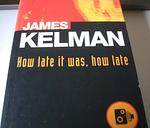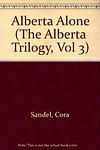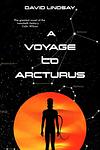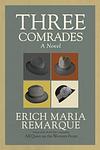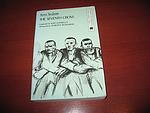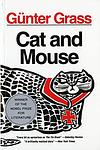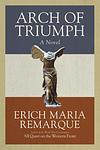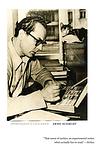The Greatest Norwegian, Scottish, German "Fiction" Books Since 1900
Click to learn how this list is calculated.
This list represents a comprehensive and trusted collection of the greatest books. Developed through a specialized algorithm, it brings together 305 'best of' book lists to form a definitive guide to the world's most acclaimed books. For those interested in how these books are chosen, additional details can be found on the rankings page.
Genres
Countries
Date Range
Reading Statistics
Click the button below to see how many of these books you've read!
Download
If you're interested in downloading this list as a CSV file for use in a spreadsheet application, you can easily do so by clicking the button below. Please note that to ensure a manageable file size and faster download, the CSV will include details for only the first 500 books.
Download-
26. The Duino Elegies by Rainer Maria Rilke
"The Duino Elegies" is a collection of ten elegies that delve into the complexities of human existence, exploring themes of love, death, time, God, and the nature of reality. The author uses vivid and often unsettling imagery to convey a sense of the profound beauty and pain inherent in the human experience. The elegies are named after the castle of Duino, where the author began writing them, and they are renowned for their introspective depth and philosophical insight.
The 1093rd Greatest Book of All Time -
27. House with the Blind Glass Windows by Herbjørg Wassmo
"House with the Blind Glass Windows" is a poignant tale of a young girl growing up in Norway during the 1950s. The narrative explores her struggles with family secrets, abuse, and the oppressive nature of her small, rural community. The protagonist's journey towards understanding and overcoming her traumatic past forms the crux of the story, which is set against the backdrop of post-war Europe.
The 1096th Greatest Book of All Time -
28. Trainspotting by Irvine Welsh
This novel is a gritty, raw portrayal of a group of heroin addicts living in Edinburgh, Scotland. The narrative is non-linear and told from multiple perspectives, providing a deep dive into the minds and lives of these characters. The story explores themes of poverty, addiction, friendship, and the struggle to escape one's circumstances, all set against the backdrop of a bleak urban landscape. It is known for its strong Scottish dialect, graphic content, and dark humor.
The 1101st Greatest Book of All Time -
29. The Lost Honour of Katharina Blum by Heinrich Böll
"The Lost Honour of Katharina Blum" is a story about a young woman who becomes the target of a media smear campaign after she falls in love with a man who is suspected of being a political radical. The media's relentless invasion of her privacy and the negative portrayal of her character lead to tragic consequences, highlighting the destructive power of sensationalist journalism. The novel is also a critique of the political climate in Germany during the 1970s.
The 1119th Greatest Book of All Time -
30. The Emigrants by Winfried Georg Sebald
"The Emigrants" is a novel that explores the experiences and memories of four different emigrants, each with a unique and complex history. The narrative primarily focuses on the psychological impact of displacement and the haunting nature of the past. The author delves deep into their lives, revealing their struggles with identity, loss, and the persistent influence of their roots. The narrative is interwoven with historical events, photographs, and other documents, creating a rich tapestry that blurs the line between fact and fiction.
The 1229th Greatest Book of All Time -
31. How Late It Was, How Late by James Kelman
The novel is a stream-of-consciousness narrative told from the perspective of Sammy, a shoplifter and ex-convict from Glasgow who wakes up in an alley after a two-day drinking binge to find he is completely blind. As Sammy struggles to navigate his new reality, he contends with bureaucratic systems, confronts his past, and grapples with his relationships, all while trying to understand and adjust to his sudden loss of sight. The story is a gritty exploration of working-class life, the human condition, and the nature of reality.
The 1335th Greatest Book of All Time -
32. The Alberta Trilogy by Cora Sandel
"The Alberta Trilogy" is a series of three novels that follow the life of Alberta Selmer, a young woman growing up in a small Norwegian town in the early 20th century. The trilogy explores Alberta's struggle with societal expectations, her pursuit of independence and her journey to becoming a painter. Set against the backdrop of a harsh Norwegian landscape, the series highlights the protagonist's struggle with poverty, her relationships, and her exploration of her identity and place in the world.
The 1346th Greatest Book of All Time -
33. A Legacy by Sybille Bedford
"A Legacy" is a historical novel that captures the social and political turmoil of early 20th century Germany through the eyes of its protagonist. The story follows a young woman who hails from two distinct families, one being a wealthy Jewish family from Berlin and the other, an aristocratic Catholic family from rural Germany. The narrative provides a detailed account of the protagonist's life, her family's eccentricities, and the eventual downfall of her families amidst the backdrop of the First World War and the Weimar Republic.
The 1372nd Greatest Book of All Time -
34. The German Lesson by Siegfried Lenz
"The German Lesson" is a vivid exploration of the moral and cultural conflicts of World War II, set in a small German village. The story is narrated by a young boy who is tasked by his school teacher with an assignment to write an essay on "The Joys of Duty." As his father, a local police officer, is assigned the duty of preventing a popular local artist from painting, the boy finds himself torn between his father's rigid adherence to duty and his own growing appreciation for art and individual expression. The narrative grapples with themes of duty, obedience, and the power of art, providing a thoughtful examination of life under the Nazi regime.
The 1383rd Greatest Book of All Time -
35. A Voyage To Arcturus by David Lindsay
"A Voyage to Arcturus" is a philosophical and allegorical novel that follows the journey of a man named Maskull to the planet Tormance, located in the star system Arcturus. As he explores this strange and mystical world, Maskull encounters various beings and experiences profound transformations, both physically and spiritually. Through vivid and imaginative storytelling, the book delves into themes of identity, morality, and the nature of reality, challenging readers to question their own perceptions and beliefs.
The 1546th Greatest Book of All Time -
36. Demian by Hermann Hesse
The novel follows the life of a young man, Emil Sinclair, from childhood to adulthood, as he navigates the duality of his nature and the societal expectations of his time. He is influenced by a charismatic and intellectual peer, Max Demian, who introduces him to the concept of the world not as a dichotomy of good and evil, but as a unified whole. This leads Sinclair on a journey of self-discovery and spiritual enlightenment, exploring themes of identity, morality, and the subconscious. The narrative is heavily influenced by the philosophies of Carl Jung and the Gnostic tradition.
The 1642nd Greatest Book of All Time -
37. Three Comrades by Erich Maria Remarque
Set in the interwar period in Germany, the novel revolves around the deep bond of friendship between three World War I veterans struggling to adapt to civilian life amidst the economic and social turmoil of Weimar Republic. The trio copes with their trauma and disillusionment by sticking together and seeking solace in their shared experiences. Their camaraderie is further enriched and complicated by the arrival of a beautiful, spirited woman, who becomes intimately entwined with their lives. As they navigate the challenges of love, loss, and the scars of war, the story poignantly captures the fragility of hope and the enduring spirit of friendship against the backdrop of a society on the brink of monumental change.
The 1660th Greatest Book of All Time -
38. Jacob the Liar by Jurek Becker
Set during the Holocaust in a Jewish ghetto in Poland, the novel revolves around a man named Jacob who fabricates the news of the Russian Army's advancement to uplift the spirits of his fellow prisoners. However, as his lies gain traction, they become a beacon of hope for the desperate people in the ghetto, leading to unforeseen consequences. The book explores themes of hope, despair, and the power of words, ultimately questioning the morality of lying for a greater good.
The 1665th Greatest Book of All Time -
39. Narcissus And Goldmund by Hermann Hesse
The novel explores the complex friendship between two diametrically opposed characters: one, a cerebral and ascetic monk dedicated to a life of contemplation and spiritual discipline, and the other, a passionate and sensual artist driven by the pursuit of beauty and worldly experiences. Set against the backdrop of medieval Europe, the story delves into themes of duality, the search for meaning, and the reconciliation of the spiritual with the carnal. As the two men journey through their lives, their intertwined paths lead them to profound insights about the nature of human existence, creativity, and the eternal struggle between the intellect and the senses.
The 1677th Greatest Book of All Time -
40. Professor Unrat by Heinrich Mann
The novel is a social critique of bourgeois society in Germany during the Wilhelmine period, as seen through the life of an authoritarian and morally rigid school teacher. The protagonist becomes infatuated with a cabaret dancer, leading him to abandon his duties and societal norms, and eventually descend into madness. The book explores themes of obsession, social class, and the destructive power of repressed desire.
The 1721st Greatest Book of All Time -
41. Mother Courage and Her Children by Bertolt Brecht
Set against the backdrop of the Thirty Years' War, the book tells the story of a canteen woman, Mother Courage, who pulls her cart with her three children across war-torn Europe. It explores her struggles and survival tactics as she tries to profit from the war while keeping her children safe. The narrative is a profound critique of war and its consequences, highlighting the human cost of conflict and the often futile search for prosperity and security in a chaotic world.
The 1731st Greatest Book of All Time -
42. The Resistible Rise of Arturo Ui by Bertolt Brecht
"The Resistible Rise of Arturo Ui" is a satirical play that uses the rise of a fictional 1930s Chicago mobster, Arturo Ui, to parallel the rise of Adolf Hitler in Nazi Germany. The narrative is a critique of those who allowed Hitler to come to power, emphasizing that his rise was indeed resistible. The play explores themes of power, corruption, manipulation, and the dangers of complacency, showcasing the destructive potential of unchecked ambition and the failure of society to prevent the ascent of dangerous individuals.
The 1735th Greatest Book of All Time -
43. The Seventh Cross by Anna Seghers
"The Seventh Cross" is a gripping tale set in Nazi Germany that revolves around seven men who escape from a concentration camp. The camp commandant erects seven crosses, vowing to hang each escapee on their return. The story primarily follows one escapee, who manages to evade capture and make his way back to his hometown. The narrative explores the psychological terror imposed by the Nazi regime, the resilience of human spirit, and the subtle forms of resistance within the German populace.
The 1747th Greatest Book of All Time -
44. Cat and Mouse by Günter Grass
"Cat and Mouse" is a novel that centers around a group of boys living in Danzig during World War II. The story is narrated by one of the boys, who recounts the life of his friend, whom they call "the great Mahlke", a boy with a large Adam's apple. Mahlke's attempts to prove himself a hero despite his physical oddity, his obsession with a sunken ship, and his eventual expulsion from school and enlistment in the war form the heart of the narrative. The novel explores themes of identity, guilt, memory, and the devastating impact of war on the individual and society.
The 1772nd Greatest Book of All Time -
45. Arch Of Triumph by Erich Maria Remarque
Set against the backdrop of the looming Second World War in Paris, the narrative follows a German refugee and surgeon who is living without proper documents after escaping from Nazi Germany. Haunted by his past and the horrors he has witnessed, he navigates the dark streets of Paris, performing surgeries in a clandestine practice for other displaced immigrants. Amidst his struggle for survival and identity, he engages in a passionate but tumultuous love affair with an Italian woman, which brings temporary solace but ultimately leads to greater despair. The story is a poignant exploration of exile, loss, and the human desire for connection and meaning in the face of relentless adversity.
The 1846th Greatest Book of All Time -
46. The Egghead Republic by Arno Schmidt
The book is a satirical science fiction novella that takes readers on a journey through a post-apocalyptic world. Set in a future where a catastrophic event has fragmented society, the story follows a journalist as he travels to an artificial island known as the Egghead Republic, a haven for intellectuals and scientists. This enclave is dedicated to preserving knowledge and culture amidst the chaos of the outside world. The narrative is characterized by its linguistic inventiveness and complex wordplay, as it explores themes of isolation, the role of intellectuals in society, and the nature of human civilization through the lens of a dystopian future.
The 1868th Greatest Book of All Time -
47. Scenes From The Life Of A Faun by Arno Schmidt
"Scenes from the Life of a Faun" is a complex and experimental novel that delves into the psyche of a German civil servant living in the aftermath of World War II. The protagonist, burdened by the guilt and trauma of the war, retreats into a fantasy world where he imagines himself as a mythological faun. Through a fragmented narrative structure and a dense web of literary and historical references, the book explores themes of memory, responsibility, and the struggle to find meaning in a shattered world. The protagonist's internal journey is a reflection on the moral ambiguities of his time, as he grapples with his complicity in the horrors of the past while seeking redemption in his personal mythology.
The 1873rd Greatest Book of All Time -
48. Galileo by Bertolt Brecht
This play delves into the life of the renowned Italian scientist, Galileo Galilei, who challenged the church's belief in a geocentric universe. It explores his struggles against the Catholic Church, his recantation, and the consequences of his actions on his life and those around him. The narrative also examines the conflict between science and religion, the ethics of scientific discovery, and the price of truth.
The 1888th Greatest Book of All Time -
49. Momo by Michael Ende
"Momo" by Michael Ende is a captivating tale about a young orphan girl named Momo who possesses an extraordinary ability to listen and understand people. Set in a town plagued by time thieves, Momo's unique gift becomes crucial as she embarks on a quest to save the community from losing their most precious possession: time. With the help of her loyal friends, Momo must confront the enigmatic Men in Grey and their sinister plan to rob people of their time, teaching readers the importance of cherishing the present moment and the power of human connection.
The 1988th Greatest Book of All Time -
50. Billiards at Half-Past Nine by Heinrich Böll
The novel follows the story of the Faehmel family, spanning three generations, in post-war Germany, focusing on the impact of war and the struggle with the country's Nazi past. The narrative centers around Robert Faehmel, an architect who refuses to build anything after World War II, his father, a World War I veteran, and his son, who is trying to make sense of his family's past. The story is told non-linearly, with the characters' memories, dreams, and perceptions revealing the devastating effects of the two World Wars on the family and the country.
The 1991st Greatest Book of All Time
Reading Statistics
Click the button below to see how many of these books you've read!
Download
If you're interested in downloading this list as a CSV file for use in a spreadsheet application, you can easily do so by clicking the button below. Please note that to ensure a manageable file size and faster download, the CSV will include details for only the first 500 books.
Download




